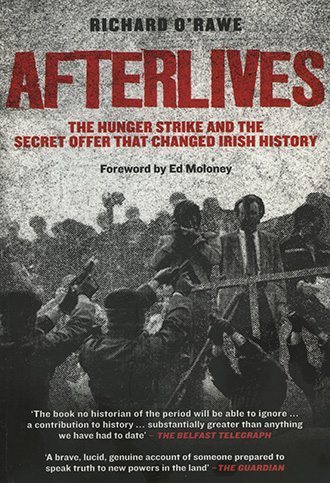
Afterlives
The Hunger Strike and the Secret Offer that Changed Irish History
By: Richard O’Rawe
Publication Date: October 2010
€20.00
Afterlives by Richard O’Rawe
By July 1981 four republican hunger strikers had already died in Long Kesh Prison. A fifth, Joe McDonnell, was clinging to life. To outsiders, Margaret Thatcher appeared unbending; yet, far from the prying eyes of the press, her government was making a substantial offer to the prisoners. On 5 July this offer was given to Gerry Adams in Belfast, and relayed to the prison leadership.
In this important sequel to the bestseller Blanketmen, O’Rawe documents the four-year war of words that followed. He interviews former members of the IRA Army Council who claim that a five-man committee led by Adams had control of the hunger strike, keeping the Army Council in the dark about the British governments offer. He uses contemporary records to show that Thatcher had approved the offer but that Gerry Adams and the committee had replied it was ‘not enough’, telling the hunger strikers that ‘nothing was on the table’. The prison leadership accepted the British offer, but six hunger strikers went on to die. O’Rawe asks: why?
This hidden history, using contemporaneous photographs, pinpoints the key players in the drama and their responses, identifying Mountain Climber, a Derry businessman who brokered the deal, and describing the contributors to the crucial hunger strike conferences of 2008-09. O’Rawe combines a moving and courageous personal record with first-hand documentation. He provides essential background and astringent commentary on the realpolitick of the peace process and republicanism in Northern Ireland today, and its impact upon the country as a whole.
With a Foreword by Ed Moloney, author of The Official History of the IRA.
‘…a compelling, powerful and virtually incontestable case that in the summer of 1981 Gerry Adams and those around him thwarted a proposed settlement of the IRA/INLA hunger strikes’ — Ed Moloney, author of A Secret History of the IRA.
‘Afterlives by Richard O’ Rawe is the history of the deal that could have ended the hunger strikes in 1981 and is the book no historian of the period will be able to ignore. O’Rawe makes a contribution to history that is substantially greater than anything we’ve had to date.‘ — Page One Book
Richard O’Rawe is author of Blanketmen, An Untold Story of the H-Block Hunger Strike (2005), acclaimed by reviewers across the political spectrum, from Maurice Hayes and Garret FitzGerald to Henry McDonald, Eam7on McCann, Diarmuid Ferriter, Nell McCafferty and Richard English.
| ISBN | 9781843511847 |
|---|
| Weight | 0.5 kg |
|---|---|
| Dimensions | 136 × 251 mm |
| Publication Date | October 2010 |
| Format | Paperback, 227pp |

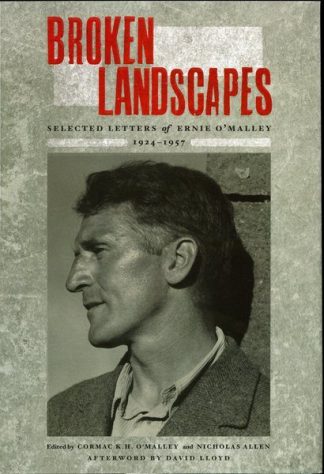
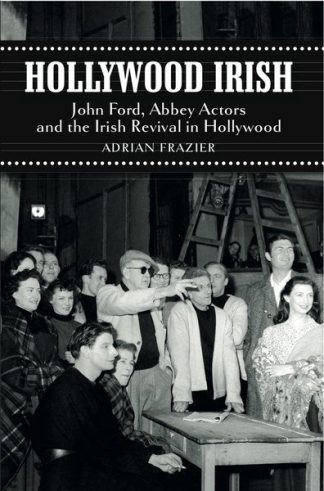
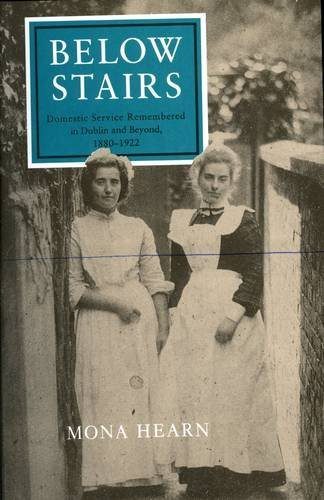
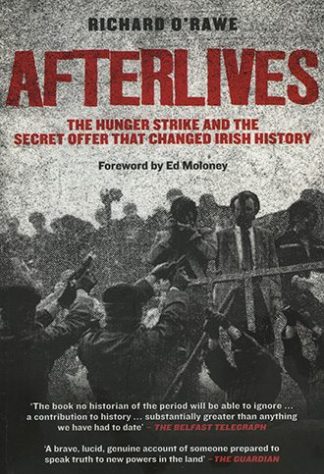
Lilliput Press –
“This is Richard O’Rawe’s second book over his controversial claim that there was an offer made by the British that could have ended the hunger strike before the death of Joe McDonnell. This book details the controversy created by the publishing of Blanketmen. Effectively it brings together all the information from media sources and discusses them in a straightforward manner. The book offers the reader the chance to look again at the developing argument and make your own mind up. The argument is convoluted, it snakes its way through the republican movement dividing it in to two camps, those that believe the author and those that don’t with an appeal to those who haven’t yet made up their mind that the evidence is weighty on O’Rawes side.
I read this book nodding my head vigorously with O’Rawe on some of his arguments and shaking it in doubt and disbelief at others. This is an emotional book, for the author, for the families of the dead, and for any reader who has lived through those times. Good republicans are on both sides of this debate, good men and true men, who took all that the British state could throw at them, and this is a sad account of some accusing others of unimaginable treachery. Yet stark evidence is there. Mainly from Liam Clarke who received documents under the freedom of information act, Brendan Duddy who acknowledged the content of the offer at the Gasyard debate, and Martin McGuinness who confirmed that he passed on to Gerry Adams the mountain climber offer.
On the other hand I’d be more convinced of the books claims if the authors cell mate had come out and supported him one hundred percent, that didn’t happen. A question posed by one of the McDonnell family was ‘why did you wait twenty four years?’ I don’t think the book answers that question fully. There are some transcripts of conversations in this book, notably from two army council members, but the author has nothing to back them up. The reader is also told that a taped conversation took place between the author and his former cell mate and no tape released to back that up. This debate is too important to take something on blind faith if evidence exsists. Somehow I think that if the conversation took place the tapes would have been released during the fierce controversial storm and yet they weren’t.
If this debate is to be won by one side or the other then all information must be put out into the public domain, and those who were on H3 who know anything should speak out. Otherwise this is a sore that will never heal.
The book is written very well, its a very good read, which throws up questions for the reader, but its not for the beginner. The ins and outs of the debate needs to be familar to the reader, if not buy Blanket men first.” KATEYO
Lilliput Press –
“The claim which Richard O’Rawe makes in this book – and which is well substantiated by his research and sources – is that the hunger strikes campaign of 1981 in which Bobby Sands and nine others died, was prolonged by the leadership of Sinn Fein for political advantage.
The final outcome of the political development from the hunger strikes – the growth of Sinn Fein – was the peace process and the ending of the IRA campaign. That being the case, many may feel that, on balance, the Machiavellian manipulation of the prisoners by leaders they trusted was ultimately justified.
Richard O’Rawe was an IRA prisoner in the Maze prison at the time and knew all of the men who starved. As their PRO, he knew that an offer had been made to them which he and others felt was sufficient to warrant the strike being called off. That offer was not properly communicated to the prisoners, withheld from them by Republican leaders at the heart of the negotiations.
In this book O’Rawe gives a cogent description of the whole game and its ghastly end.
This book is now an indispensable part of the historical record of the Northern Irish Troubles and the IRA.
It effectively rewrites the received account of heroic men dying for justice that was denied them. They died to provide momentum to the political campaigning of Sinn Fein. And they didn’t know it.” MR MALACHI O’DOHERTY
Lilliput Press –
“This book isn’t for those without a previous (at least passing) background knowledge of the hunger strikes. So on that point anyone expecting a potted history lesson would be better picking up the author’s previous work ‘Blanketmen’ or ‘Ten Men Dead’ by David Beresford.
But O’Rawe’s current book is vital.
I’d always been raised on what is now termed the ‘official version’ of the Hunger Strikes. In other words the explanation offered by the Sinn Fein leadership of that time. I’d agree with the above poster that it makes for difficult reading on occasion, but confirms much of what had been hinted at amongst Republican activists over the years. Unfortunately many of those people were later alienated and made incommunicado by the same party who they’d worked very hard for in that time – mainly because they’d voiced healthy criticism that didn’t tally with the current or future political direction Sinn Fein was going in.
Which perhaps explains why O’Rawe never raised these issues over the years previously. Hostility from those who were once friends and (more importantly) comrades could produce wounds more painful than any bullet.
This is perhaps why he should be commended on coming forwards and writing his account. It’s vital (as Che Guevara once said) that “the revolutionary must stick to the truth as a finger sticks to the glove”. I’m certain his friends who suffered and died in the H Blocks are deserving of that.” FRIEDLAND
Lilliput Press –
“Richard O’Rawe’s sequel to Afterlives goes into more detail surrounding the 1981 Hunger strikes in Long Kesh and how there was an offer that would have saved the life’s of most of those embarked on this watershed in Irish Politics. You must read this book and make up your own mind, I agree with Richard O’Rawes account 100%.” DANNY GILL